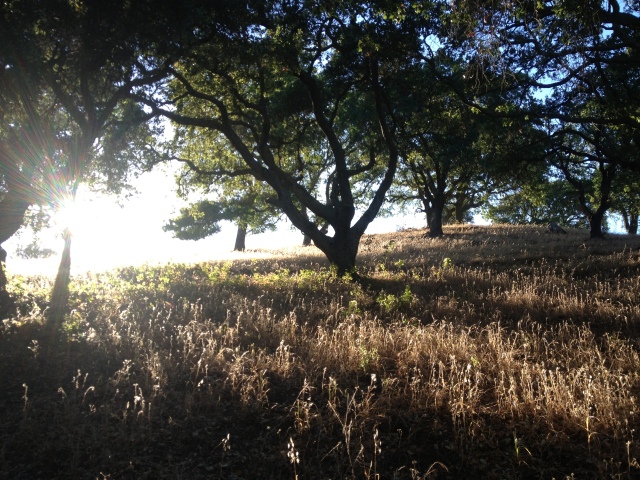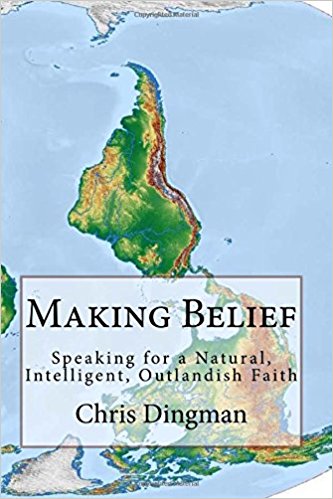the right reason to refrain
from talking about sex
is not that it’s so crude, but that
words are

In The Function of the Orgasm, the psychoanalyst Wilhelm Reich wrote that the natural energies of humans ebb and flow on their own and don’t require the imposition of morality or duty. When such concepts are imposed, he insists, our relationship to pleasure becomes problematical and we act out in destructive ways.
Welcome to Western Civilization.
We as a culture have been experiencing an anxiety about pleasure that goes back thousands of years. We can monitor that anxiety through our attitude towards the orgasm.
The orgasm is the distilled essence of enjoyment; pure pleasure that harms no one. Why then has so much suspicion, disgust, and shame sprouted up like weeds around it in our cultural psyche, even among the non-religious?
When it is dragged out of the closet, our conversations about it fail to do it justice. We examine it under fluorescent lights, sterilizing it with heavy doses of Latin words, as though it were all a matter of mechanics. Our only other alternative seems to be crude, even violent slang. We “bust a nut,” or “rub one out.”
We don’t know how to talk about cumming. Here’s one shot I took at it. (“Shot?”)
orgasm is
a flower bloo-
ming or dark
ink suffusing,
internal, infernal
fireworks, spirits
summoned by chants
and incantations—ritual
in the dark or any
gas station bathroom
and one of two things
we have left
for centuries
from the sanctioned report
(our eyes fixed
on boulders of the mind
and the statues
of martyrs): the orgasm
and the dream
The orgasm makes us uncomfortable. We even contort our faces into images of pain when we have one. This discomfort points to our general discomfort with pleasure.
Now there’s an amazing phrase: our “discomfort with pleasure.” And yet this oxymoron is a central feature of the Western psyche.
We have not made our minds up about pleasure. It’s an on-going war, an internal Vietnam. There’s something we vaguely sense is threatening in it: like a rot that might take over our lives if we give in—a softness, or lack of discipline.
Orgasms are as hard to talk about as dreams. Like dreams, they seem to belong in a delicate world that words enter only like needles enter a soap bubble.
The orgasm may be as close to magic as humans get in the waking state. Revelations come through any of our senses: sight, sound, intuition. Orgasms are revelations that come through feeling.
“We have no sympathy but what is propagated by pleasure.”
—Wordsworth
As pure pleasure, the orgasm symbolizes pleasure of all kinds. Our attitude towards it, as Reich saw, tells us something fundamental about our psychic health that has consequences in all areas of our life.
Reich said that sexual energy is life energy. We could also then say that life energy is sexual. That suggests that all of life can be enjoyed.
Remember Christ’s words from Matthew: “It is your Father’s good pleasure to give you the kingdom.” Good pleasure!
Every bodily action, from swinging our legs as we walk to sipping coffee, can be savored. Like coffee and cream, like sex, each moment of life is unspeakably rich, redolent with overtones.
This is the state of awareness that Eckhart Tolle reached the night he was enlightened. His book, The Power of Now, contains an account of that night and the subsequent bliss he experienced. He writes, for example, of hearing birds outside his window as though for the first time, finding them intensely beautiful.
Tolle’s experience is unusually dramatic. But we too can experience life more richly: by simply paying more attention to our immediate physical experience, whether it is an internal or external sensation.
We can feel what our bodies are doing more often. We can “occupy” our bodies with our consciousness, by allowing our usually frenetic “head consciousness” to diffuse downwards, to enter what we’ve been afraid might be darkness and chaos, but which is really anything but.
If you are like many people, when you do this you will suddenly become aware of how much unnecessary tension you’re holding in various places—how you are clenching against experience. And as you simply become aware of it, you will let it go.
This is both a pleasurable and a grounding experience. It centers you. You move through the world with more grace and confidence.
You can also practice paying attention by stopping sometimes and just listening to what is around you. Be aware of each sound, or experience the silence in between the sounds. Or focus on what you see.
Wherever you are, notice something different than you’ve ever noticed before, regardless of how small.
Journal writing, if approached as exploration and not just the recording of thoughts or events, also helps allow us to “see” new thoughts. It allows us to lay out the contents of our minds in front of us, like a collection of objects that can be examined.
These exercises won’t sound grand or dramatic enough for some people. They seem too small to bother with. But they have a cumulative and profound effect.
Jesus often speaks of things overlooked by most that nonetheless become hugely important. The mustard seed, so small, becomes a mighty tree. Children, thought silly, embody great wisdom. Likewise, “The stone which the builders rejected is become the head of the corner.”
“Each morning when I awake, I experience again a supreme pleasure—that of being Salvador Dali.”
—Salvador Dali
Paying attention in small ways helps us more frequently allow something bigger than our little i to enter our lives—to break through the habitual thoughts that have kept us in our ruts. It connects us to a bigger version of ourselves.
As with any kind of practice, we start small and allow our capacities to grow. Savoring “small” pleasures leads to greater and greater pleasures. How could we enjoy a mansion if we don’t yet have the capacity to enjoy a single room?
dusk, the deck
of a Starbucks:
laptops glowing, 80’s
music drum-machining
predictably through
the speakers. when
suddenly HONKS
—no, squawks, no, noises
unnameable—pull
my eye
skyward to three
Canadian geese
flying low.
a flash. a vision. a dream.
a huge fish breaking
the waters. then gone.
but the ripples call
to something gut
-ward, something the whole
body feels—Something
clumsy and pure, the story
of christ unadorned
by the church
years of waiting
it is
a reminder:
stay bewildered,
stay raw, stay loose.
stop naming things
—an excerpt from
Making Belief: Speaking for a Natural, Intelligent, Outlandish Faith
available here



 If we decide that reality is out there in the “objective” world, then everything we know about reality comes to us through our senses. Can we trust them to tell us about the ultimate nature of that reality? What’s happening at that interchange, where something “out there” in the world registers “in here” in our experience of it?
If we decide that reality is out there in the “objective” world, then everything we know about reality comes to us through our senses. Can we trust them to tell us about the ultimate nature of that reality? What’s happening at that interchange, where something “out there” in the world registers “in here” in our experience of it?